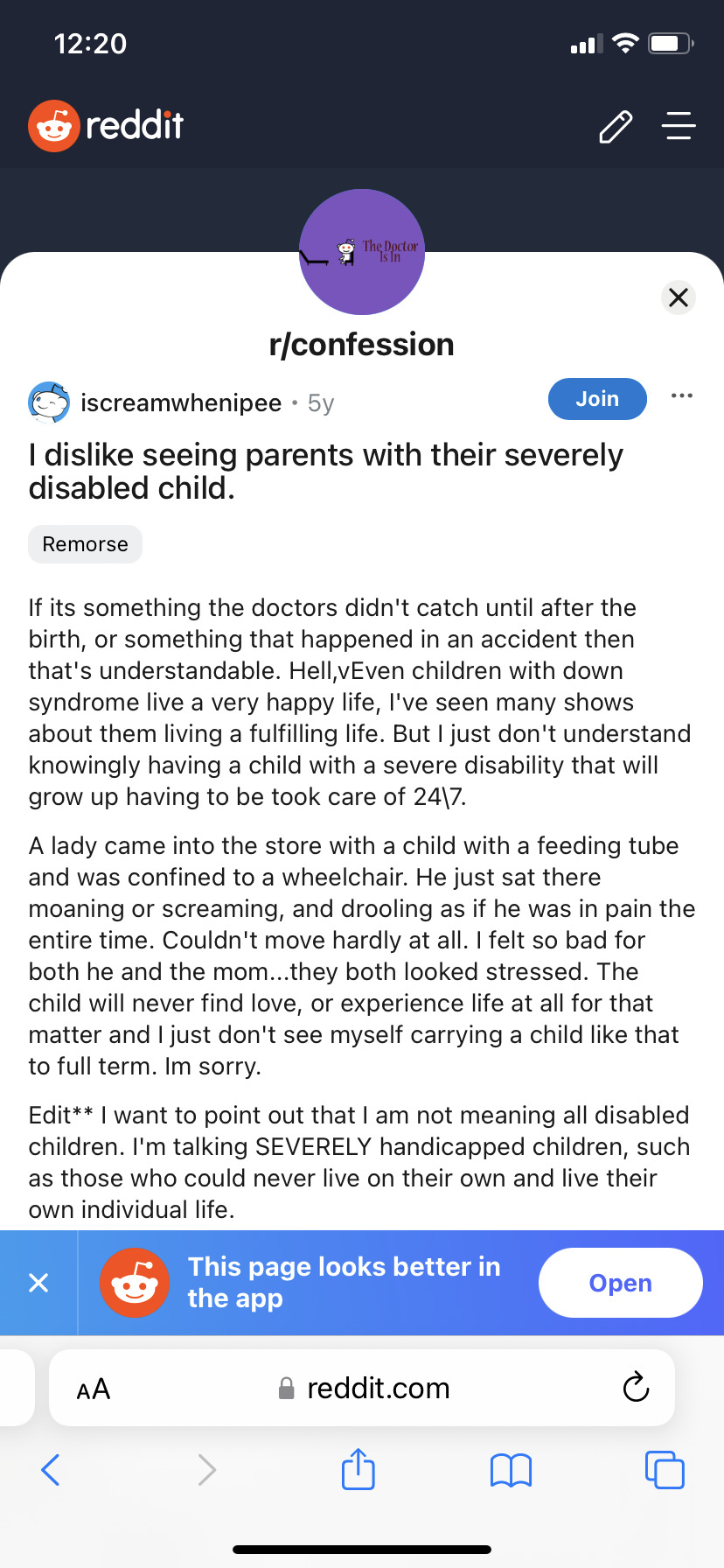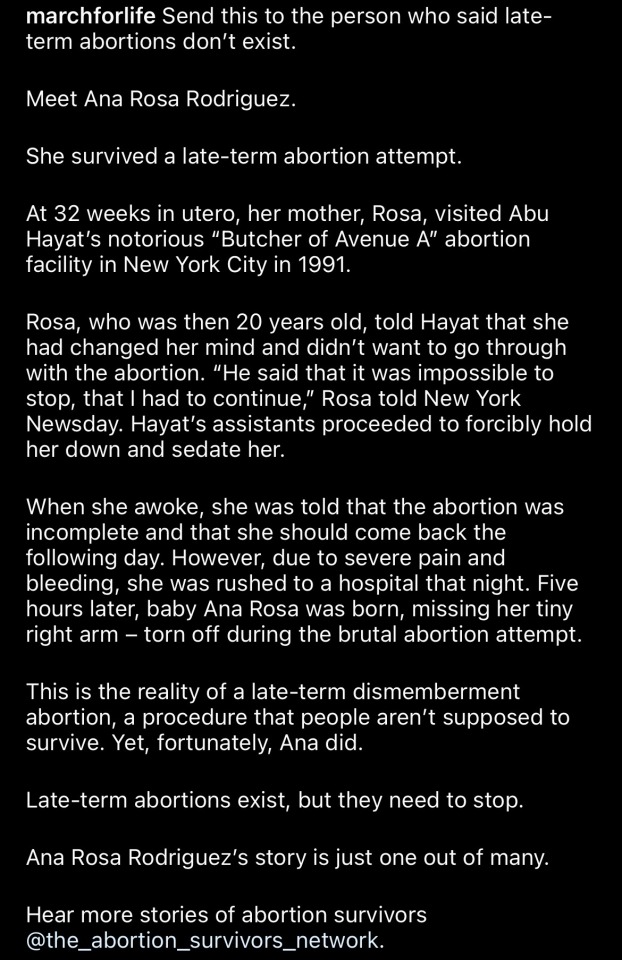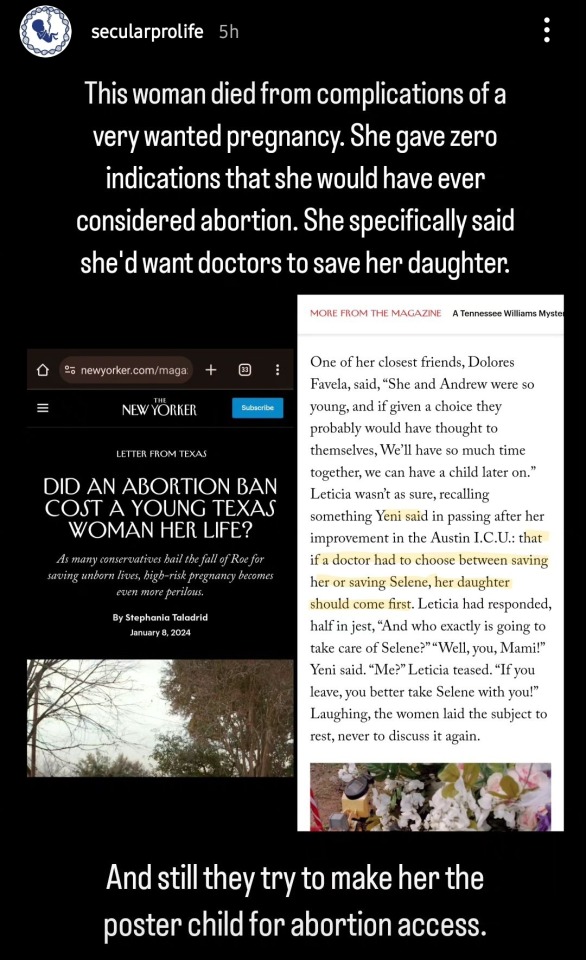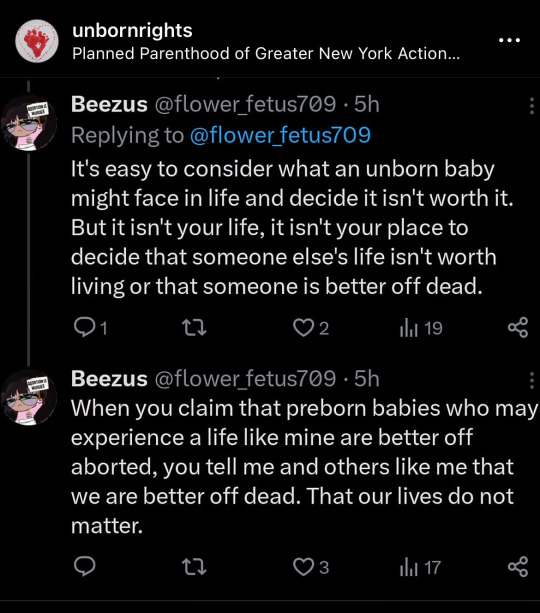Text
“It started in 1971 when a young attorney named Sarah Weddington argued before the court that pregnant students, working women, and poor women needed access to abortion, rather than to challenge universities, employers, and society to address the unmet needs of mothers and their children. This anti-feminist sentiment was echoed in 1992 when the court determined in Casey that women were basically incompetent, telling women that they cannot succeed in the workplace and have children, implying that bearing a child is an “undue burden.” At Feminists for Life, founded a year before Roe v. Wade was handed down, we never considered having children an “undue burden.” It would be years later that our co-founder Pat Goltz learned from the great suffragist Alice Paul that we were not the first pro-life feminists; the first-wave feminists opposed abortion, too. Nor did we know at the time that during the latter half of the 19th century, the leaders of the women’s movement advocated for the protection of women and children from abortion, along with doctors (including the first women physicians) and the liberal media. Since then, we have widely shared our original research documenting how the first-wave feminists opposed abortion without known exception.”
— Serrin Foster, Don’t underestimate women
237 notes
·
View notes
Text
“When we turned up at the clinic, pandemonium broke loose,” student Anna Broomall recalled. Awaiting them in the upper tiers of the amphitheater were nearly 300 male medical students — far more than were typically in attendance. The men began hurling epithets, catcalls, and other offensive language at the women. Some men insulted the women’s appearance while others spit tobacco juice on their dresses…
…During the last hour of the lecture, the male students rained down a barrage of tinfoil wads, paper missiles, spitballs, and tobacco wads upon the women. Throughout it all, the female students never flinched or retaliated, choosing instead to quietly listen and attempt to learn whatever they could amid such chaos. The women’s lack of reaction must have further incensed the men, for they surely hoped to show how fragile and emotional women were.
62 notes
·
View notes
Text
Logged in for the first time in forever, why am I seeing posts from people I don’t follow and none of those I do???
6 notes
·
View notes
Text
"I would have helped Anne Frank" shut up you asked me how to report your neighbors to the cops for having more than four people in their backyard in May 2020
1K notes
·
View notes
Text


Pro-choicers shut up forever challenge.
2K notes
·
View notes
Text
People will brag about breaking cycles and then not know how to take a deep breath and walk away.

Part of a longer thread about corporal punishment that I don't care about but this is one of the funniest contributions to that debate I've ever read
Getting kicked to death because mommy needs to unwind and self-care is fucking valid and um can we normalise stimming by beating your son for no reason? Can we think about how maybe beating your child is how some neurodivergent parents regulate their emotions? Can we have some empathy?
#just put your kid somewhere safe#and then#walk away#have a break#level out and return#9/10 you will return to a regulated child who is chill#now anyway
754 notes
·
View notes
Text
“Jolán Roe” (Hungary 1968)
Hungary legalized first-trimester abortion on demand and second-trimester abortion in various circumstances in 1956. Before then, abortion was only legal in applicable maternal health indications.
The Hungarian abortion laws instated in 1956 permitted abortion on demand in the first trimester (and until 18 weeks for unmarried teenagers 16–20.) Later abortions were still allowed for medical indications. The law was later loosened even further.
As a whole, Hungary saw a significant increase in the rate of abortions, which at one point outnumbered the country’s live births. With this came a massive increase in conditions such as placenta previa, premature labor and other conditions, showing the effects of abortion legalization as a third variable for future obstetric complications. Some effects, however, were more direct. Despite then-stringent regulation to protect maternal health (trimester limits, requiring that all abortions be done in sterile hospitals by experienced obstetricians, and typically keeping abortion clients at the hospital until the day after the operation), women still died from legalized abortion-on-demand.
One case of this was a woman who was reported to an Obstetrical Register and noted in a case report years later. She was not given a name in the report but will be referred to here as Jolán Roe.
Jolán underwent a legal abortion in a Hungarian hospital in 1968. Even with all of the safeguards in place (which dramatically put the standards in most places with legal abortion today to shame), she outlived her baby by less than three weeks. On the 19th day after her abortion, Jolán committed suicide.
The study examining cases of maternal death in Hungary from legal abortion acknowledged and recorded her case, but chose to exclude her from their estimate of maternal deaths. Apparently this was because they didn’t consider Jolán’s suicidal ideation to be direct enough of a result despite now-abundant evidence linking abortion to risk of suicide. (This raises the question of how many women and girls may have been excluded from attempts to estimate complication rates if their symptoms were thought to be “indirect” or if they suffered mental health problems.)
Dozens of other women reported in the study died of various causes such as embolism, sepsis, peritonitis and anesthesia complications.
Others who suffered mental health problems and committed suicide after abortion include Stacy Zallie, Carol Cunningham, Arlin Dela Cruz, Sandra Kaiser, Jade Rees, Emma Beck, Ashley Barnett, Haley Mason, Ashli Blake, Charlotte Dawson, Laura Grunas, “Sandra Roe,” “Sylvie Roe,” “Stacy Roe” and Jiah Khan.
5 notes
·
View notes
Text
“Can you define woman without excluding any woman?” Yes, I can, actually.
A woman is a person born with at least one X chromosome and with the absence of a Y chromosome.
It’s fairly simple. People with Turner’s syndrome (XO) are ALWAYS female, and people with Klinefelter’s syndrome (XXY) are ALWAYS male, because the presence of the Y chromosome makes them male. And this isn’t my opinion by the way, this is medical literature. We’re also talking about sex here, not gender. This includes any variation of chromosomes - for example, the extremely rare genetic disorder, XXXYY, people with this disorder are ALWAYS MALE, even though they have more than one (and two!) X chromosomes, because the presence of the Y chromosome makes you male.
I give any radfems and/or TERFs the right to use this explanation whenever some TRA trues to pull the “but what about (extremely rare genetic disorder) or (someone with no ovaries, a hysterectomy, etc). Because you don’t really need to define “woman” by external genitalia or even anatomy, because there’s one thing that all women have, no matter what. And it’s at least one X chromosome, and no Y chromosome.
#medical terminology#genetic mutation#i understand some ppl with these disorders may have a gender expression different from their biology#but this is about the biological sex#biological sex is real and has real ramifications regardless of social definitions#please start acting like it
2K notes
·
View notes
Text
Is anything more infuriating than when people describe a woman as "trapping" a man with a baby
#yeah#unless the woman tampered with her/his BC#or lied about her BC use#then 'babytrapping' is a misnomer
536 notes
·
View notes
Text
thinking about the fact that there’s practically nothing preventing children from consuming hardcore pornography on the internet, but yet you could be jailed for handing a child a pornographic magazine.
I just seriously don’t understand why porn is so fucking accessible. I don’t understand why it’s easier for a child to access violent porn than it is for them to purchase a PG-rated movie.
2K notes
·
View notes
Text


368 notes
·
View notes
Text
“Opal Roe” (USA 2020)
Because of the way that Opal’s death was recorded, not much is known about her except her state, year of death and cause of death.
Opal underwent a legal abortion in Texas and died in October of 2020. Even with the new system overhaul for abortion data reporting in the state, very little was recorded about her.
It should be noted that even though the law required physicians and hospitals should to report deaths by legal abortion on the form, the total number of abortion deaths under “reported by physicians” was listed as zero. The abortionist who killed Opal did not report her death, and neither did any doctors who may have treated her in an attempt to save her life. Her death would have been entirely unreported if an unknown person at the abortion facility hadn’t submitted a report. This brings attention to the issue of the new reporting system, which seems to still be missing data despite changes.
Less than two years after Opal’s death, the overturn of Roe v Wade allowed the state to strengthen abortion laws, protecting others like her. Unfortunately, this decision came too late for Opal and her baby.
28 notes
·
View notes
Text
“women only do onlyfans if they are dumb and have a low IQ!!!”
Wouldn’t dumb men do the same if it was a problem of low intelligence? But they don’t? Even the dumb ones have the money to access their bodies? Can you tell me why that is? :)
37 notes
·
View notes
Text

So disgusting. If I die during pregnancy and some greedy journalist tries to make my story support abortion, I will beg God to let my spirit come back and haunt their ass.
375 notes
·
View notes



